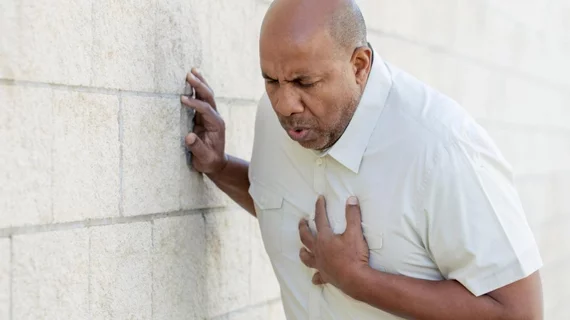Why some heart attack patients are at a greater risk of post-discharge heart failure
Some acute myocardial infarction (AMI) patients experience severe in-hospital complications—shock or stroke, for example—and need to fully recover before they are discharged and sent home.
According to a new analysis published in the American Journal of Cardiology, such patients are at an increased risk of a major adverse cardiovascular event (MACE) within the first year after discharge—and they should be managed closely and carefully by their cardiologist.
The study’s authors examined data from nearly 500 AMI patients from a single facility. Overall, 14.5% of patients with in-hospital complications and 7.9% of patients with no in-hospital complications experienced a MACE. And heart failure-related cardiovascular events were the most common by far.
“We should discuss why MACEs were more frequently observed in the in-hospital complications group than in the non-complications group,” wrote lead author Shinnosuke Sawano, MD, of Jichi Medical University in Japan, and colleagues. “Although the MACE was defined as the composite of all cause death, non-fatal MI, and readmission for heart failure in the present study, only readmission for heart failure was more frequently observed in the in-hospital complications group than in the non-complications group. Thus, the main reason for the difference of MACE would be derived from the readmission for heart failure.”
Sawano et al. emphasized that cardiology care teams should remember that AMI patients discharged after severe in-hospital complications are a high-risk group for future cardiovascular events, especially heart failure.
“It may be a first step for better clinical outcomes to recognize those patients as a high-risk group,” the authors wrote. “A careful follow up by cardiologists after discharge may be important for those patients to prevent readmission for heart failure, which was not assessed in the present study. Future studies to assess the effect of a careful follow-up are warranted.”
The full American Journal of Cardiology study is available here.

